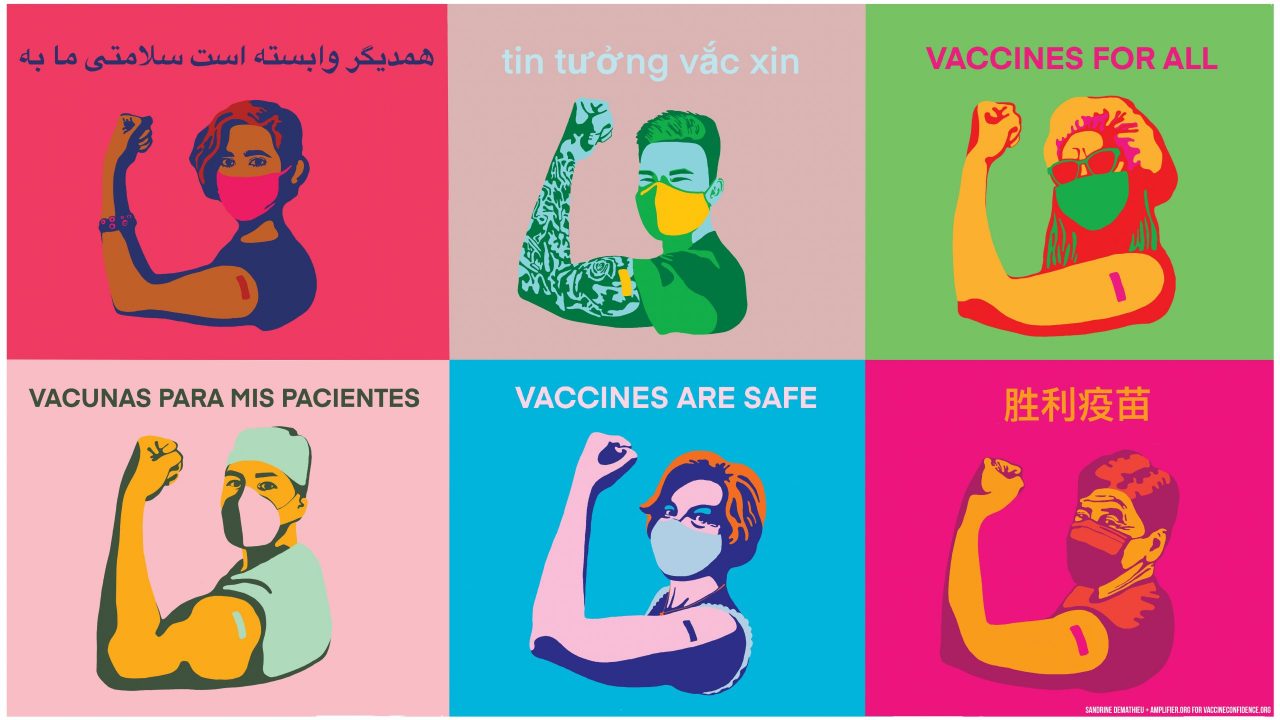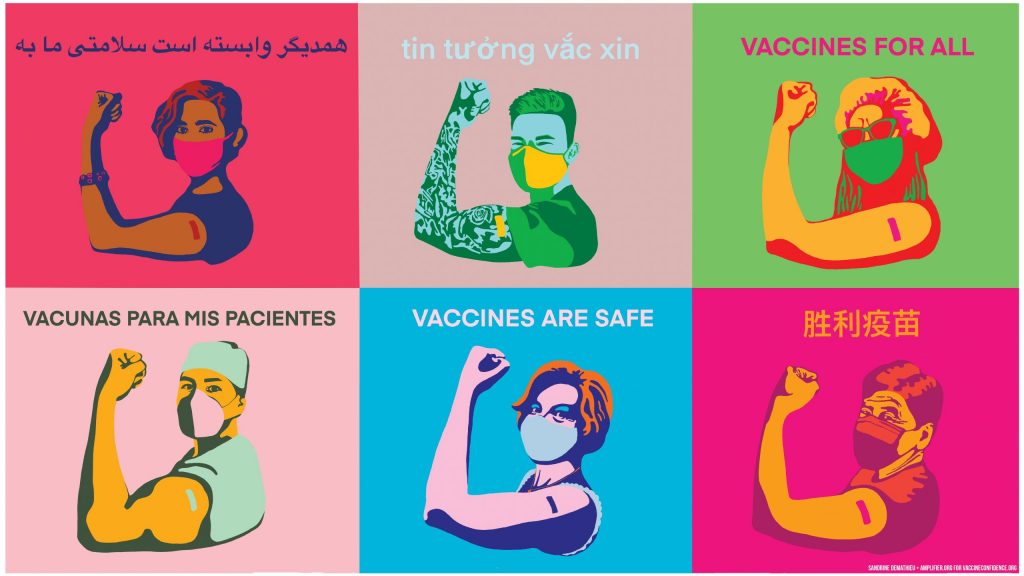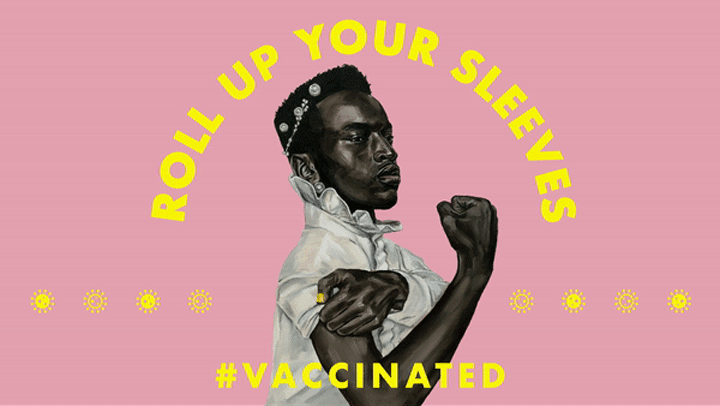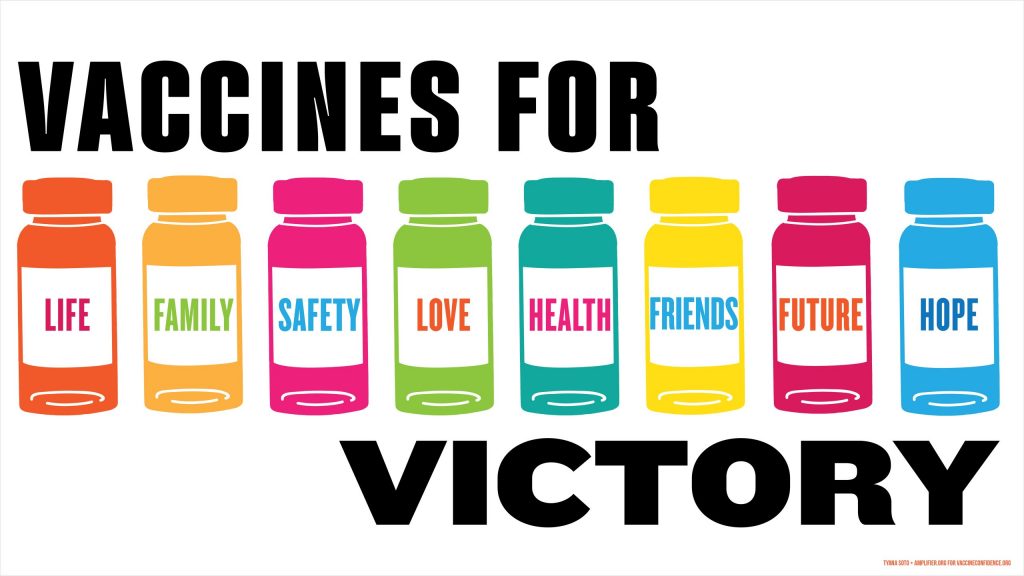A Round-up of Effective Communication Resources for Discussing COVID-19 Vaccination in Honor of National Immunization Awareness Month
Held each August, National Immunization Awareness Month (NIAM) is an annual observance that highlights the importance of vaccination for people of all ages. This year’s observance notably carries a heavier sense of urgency in light of the pandemic and availability of new COVID-19 vaccines that have been met with a spectrum of acceptance, hesitancy and refusal driven by a matrix of worldviews, lived experiences, identities and emotions.
As many healthcare providers, public health partners, community leaders and public officials continue to help educate communities and promote COVID-19 vaccination, an inspiring number of trusted organizations and collaboratives, including the Colorado Public Health Workforce Collaborative*, have developed toolkits and messaging resources to help effectively communicate about the safety and effectiveness of COVID-19 vaccines. Included here in our August newsletter is a roundup of credible resources developed for diverse audiences to help community members, providers and leaders across sectors protect the places where we live, work, learn and play by building trust for COVID-19 vaccination.
COVID-19 Vaccination Communication Resources
Amplifier Art
Free and open source digital art designed to shift culture and change national narrative
Amplifier is a nonprofit design lab that builds art and media experiments to amplify the most important movements of our times. Their platform features a diverse and imaginative collection of free and open source art commissioned to support a host of campaign topics, among which include vaccine confidence and uptake.
Colorado Talks Health
A repository of downloadable graphics, creative assets, messaging recommendations and toolkits for communicating about COVID-19
A collaborative effort between members of the Colorado Public Health Workforce Collaborative, Colorado Talks Health aims to provide public health workers and local public health agencies in Colorado with effective messaging tools for addressing vaccine safety, promoting disease prevention and containment, combatting vaccine hesitancy and sharing guidance for safely reopening the places where we live, work, learn and play.
Heartwired: A COVID-19 Vaccine Messaging Guide from the Colorado Health Foundation
Created in partnership with Wonder: Strategies for Good and Goodwin Simon Strategic Research
Leading with strategies that build trust, answer questions and inspire hope, this guide provides messaging recommendations for the vaccine-hesitant in Colorado, focusing on communities of color where both historic and contemporary experiences of discrimination and experimentation by the government and medical community spark distrust of vaccines today.
Public Health Communications Collaborative (PHCC)
Resources for public health professionals
PHCC was formed in 2020 to coordinate and amplify public health messaging on COVID-19 and increase Americans’ confidence in guidance from the Centers for Disease Control and Prevention (CDC) and state and local public health officials. Their website offers messaging resources, misinformation alerts, shareable content and framing guidance for discussing politicized topics related to COVID-19.
Project VCTR
Monitoring local and national conversations about COVID-19
Project VCTR (pronounced “Vector”) tracks, identifies and responds to vaccine-related media conversations across the nation. Every day, their team of analysts monitor all publicly available media channels, from broadcast and blogs, to social media and news. They apply public health expertise to themes and trends observed at both the national and state level. Request for access is required.
Vaccinate with Confidence: Strategy to Reinforce Confidence in COVID-19 Vaccines
From the Centers for Disease Control and Prevention
Build an understanding of vaccine confidence and audience-specific communication toolkits for healthcare teams and community administrators. Here you’ll find a range of toolkits developed for health departments and public health partners; healthcare providers; recipient education; long-term care facilities; employers of essential workers; community-based organizations; and school settings and childcare programs.



